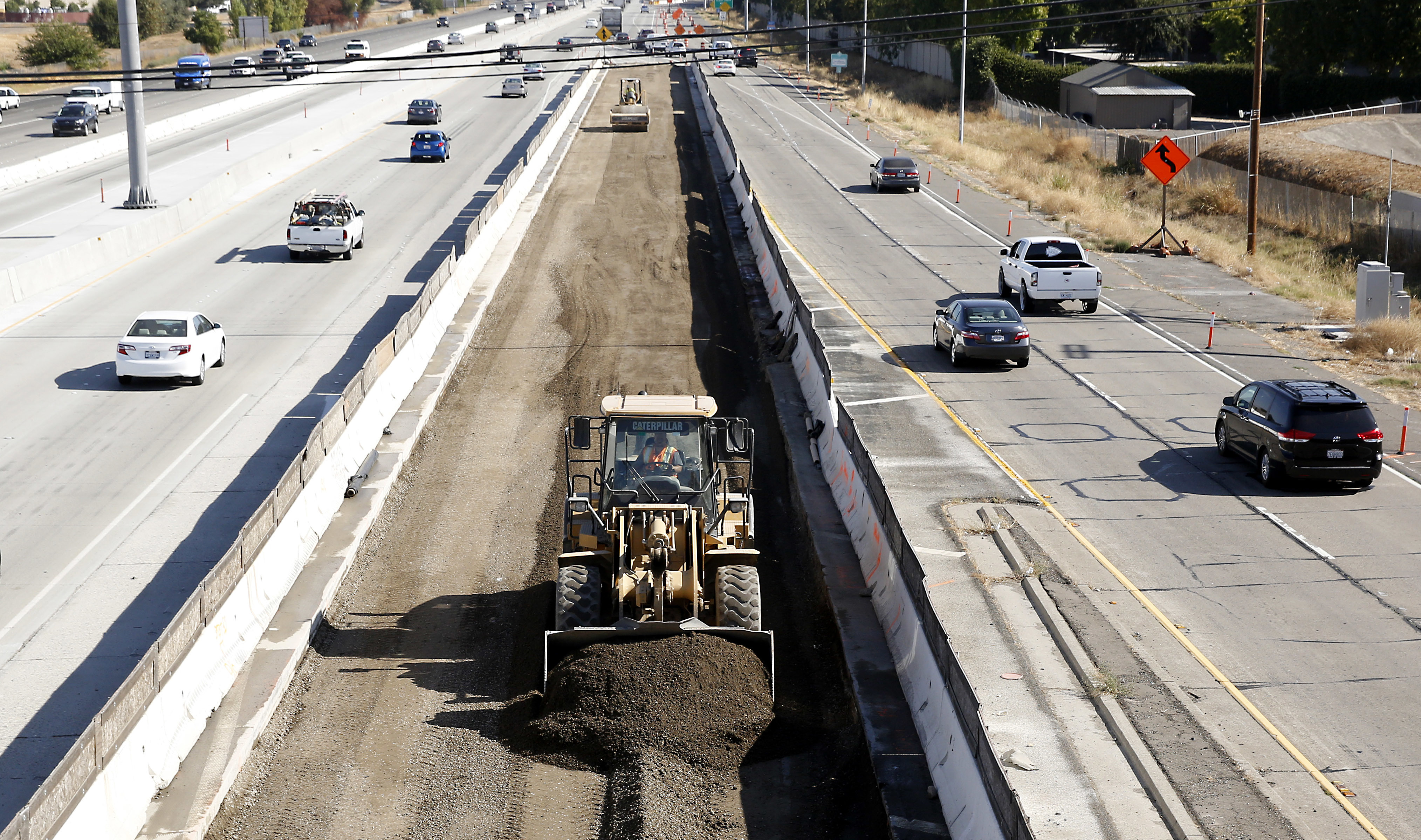President Donald Trump’s infrastructure plan is still very much on its training wheels, and even the little that’s known about it has frightened lawmakers of both political parties.
As he entered office, Trump touted a $1 trillion infrastructure plan that even Democratic lawmakers were willing to collaborate with his administration on, but after months of Congressional feuds and stalemates, many have been left feeling pessimistic, Politico reported. The biggest issue, of course, is how Trump intends to afford his plan, by diminishing the federal role, ushering in private funds and placing a burden on states to lug perhaps more than they could carry, which has drawn ire from many.
Politico elaborated:
Instead of the grand, New Deal-style public works program that Trump’s eye-popping price tag implies, Democratic lawmakers and mayors fear the plan would set up a vicious, zero-sum scramble for a relatively meager amount of federal cash — while forcing cities and states to scrounge up more of their own money, bringing a surge of privately financed toll roads, and shredding regulations in the name of building projects faster.
Federal spending for the program, which spans a decade, would max out at $200 billion, a number even Trump has said was “not a large amount,” according to Politico.
At this moment, the prospects look more like blueprints for some of Trump’s several failed projects, but he’s expected to tout the plan during his State of the Union address on Tuesday.
But even Republicans have expressed skepticism on the looming price tag, and who will take care of the bill. “A lot of it, I think, will come down to how is it paid for,” Sen. John Thune, R-S.D., chairman of the Senate Commerce Committee said. “And, you know, the substance will matter, I think, in terms of whether or not there’s bipartisan support for it.”
The White House, however, has said the plan would “lure a far larger pool of state, local and private money off the sidelines, steering as much as $1.8 trillion to needs as diverse as highways, rural broadband service, drinking water systems and veterans hospitals,” Politico reported.
“I think we’re down to minus about $200 billion, because I don’t think they have enough money to fund the current program, let alone anything on top of it,” Sen. Ben Cardin, D-Md., who is familiar with the administration’s plans said. “I don’t see any money from what I’ve seen so far at all. Zero. Not $200 billion, certainly not a trillion.”
But the private funding approach, and relinquishing much of federal control, has been lauded by the White House, which once again placed blame on “the Washington establishment.”
“The Washington establishment still thinks that infrastructure can only be built correctly if they make all the decisions and control the purse strings, but one look at the crumbling bridges and roads across America shows that approach has failed,” Deputy Press Secretary Lindsay Walters said in a statement, Politico reported.
The plans fit the broader Trump administration theme, which has been to reduce federal government involvement in nearly everything, while opening the floodgates to privatization. It’s not clear how the Trump administration would contribute to projects, either. For example, New Jersey and New York have long battled over funding for a new rail project under the Hudson River. Trump has already refused to pay half of the anticipated $13 billion price tag, and a leaked draft of the plan “indicated that federal grants under one major part of the plan could pay no more than 20 percent of a project’s costs,” Politico reported.
“It’s a direct repudiation of the federal role in building infrastructure,” one person familiar with the Hudson project told Politico. “It’s pitting project against project, regardless of the merit.” The source also compared the administration’s efforts to “The Hunger Games.”
Trump’s efforts come together in a way that could be considered a handbook for neoliberalism, which transfers public wealth into the private sector and promotes austerity and a deregulatory agenda. After months of struggle, Trump finally achieved his first legislative victory when GOP-led Congress passed an overhaul to the tax code, but the legislation, as well as his plans for infrastructure, are more similar than many realize. When push comes to shove, the public will take the biggest hits.

